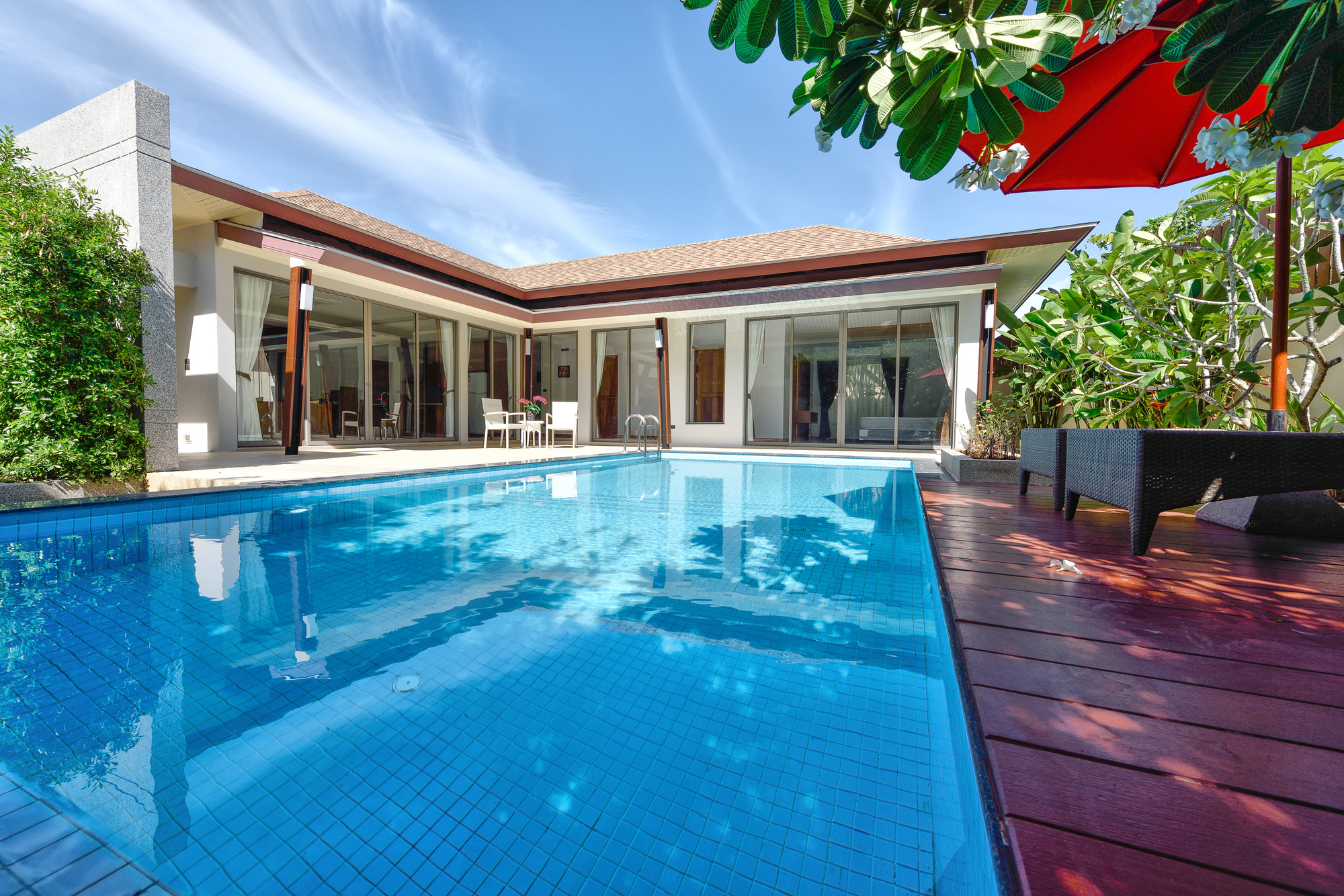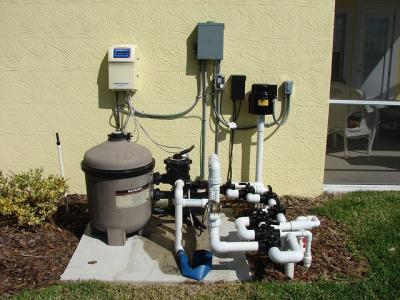Everything to Consider When Choosing Water Filters for Pools

Are you looking to upgrade your pool water filter?
If you want your pool to stay in working order, you must look after it. Especially as we go into winter, and this includes keeping your pool free of dirt and debris.
A pool net and making sure you do your pH testing is vital, but so is having the right pool filter. With so many on the market though, it can be hard to know which one is best for you.
Don't worry, we're here to help! Keep reading for our guide on what you should consider when choosing water filters for pools.
What Are Pool Filters For?
Before we look at what you should consider to get the right filter for your needs, let's look deeper at what they are. As you're likely aware, pool filters should trap debris, twigs, dirt so it doesn't get into your pool.
But, what a lot of people don't know, is they also help make sure your pool water has the right flow to it. This stops the water from stagnating, keeping it free from bugs and parasites that could harm you. After all, stagnant water is the perfect breeding ground for a lot of nasty insects.
Filters also prevent algae growth in your pool. With fewer bacteria in the water, there aren't the conditions that algae need to thrive. Above all else, they're keeping bacteria out of your pool as much as possible.
This is important for keeping everyone safe, but especially young children. We all know how impossible it is to keep them from the pool, so it's important they're safe while they swim. This is the best reason to make sure you've got the right type of filter for your pool.
Size Does Matter
Pool filters work best when they're the right size and fit for your pool. Why? Well, if it's too small for your pool size it won't do the job it's supposed to. It won't have enough power and capacity to filter to that level.
So, your pool fills up with debris that you have to remove by hand or you need to change the filters more often. Neither sound very appealing.
A filter that's too small also runs more of a risk that it will break due to strain and overuse. Not only does that ruin your filter, but it could also cause damage to your pump which is a far more costly fix.
If your filter is too large for your pool, it could carry too much electrical current. There's no need to explain what happens when electricity and water mix, but you wouldn't want to go for a swim, that's for sure!
It can also cause water to rush through into the pool too fast, causing a current. This would make for an uncomfortable swimming experience. It could also wear away and damage your tiling too if bad enough.
First Steps For Choosing the Best Pool Filter
When choosing the best type of pool filter you first want to measure your pool. By measure, we mean you need to get the surface area, not the amount of water it holds. In most instances, the paperwork from your installation should hold this information. But if not, you can do it yourself.
Measure the width and length of your pool is square or rectangular. Then, multiply together the length by the width to get your surface area. If your pool is round, measure the distance straight across your pool. Multiply this by 3.14 to get your surface area.
Once you know the surface area, you need to work out the total volume. This is what most pool filters measure by and the equation is:
Volume = Length x Width x Average depth x 7.5
This equation is a little more advanced, so it's always best to refer to your paperwork. You can also call the company that installed your pool to see if they have a copy of the paperwork to send to you. Or try this handy online pool volume calculator.
Types of Pool Filters: Knowing What You'll Get
Once you have the measurements you need, you can start looking at filters. Here we'll look at the main types of filters you'll be choosing from.
These are; sand filters, cartridge pool filters, and DE filters. We'll tell you all about them so you can learn what they do and see which one would fit best for the needs of your pool.
Sand Filters
As the name suggests, a sand filter will strain the pool water through the sand to keep it clean. It pulls the water down into a large area of sand which then traps any dirt and debris.
The more debris that a sand filter catches, the lower your water flow will be so keep this in mind. It'll also put more strain and pressure on the sand filter itself, so you need to stay on top of cleaning.
When cleaning sand filters, you'd use the backwashing method. This is where you run the water in a reverse flow to its normal direction. Any waste collected will then get dumped out for you to dispose of. If you look at your filter, you'll see there is a backwash valve for this reason.
Sand filters are popular before they're the most affordable filters of the bunch. They also work with high efficiency, causing them to be very effective and their job. They can filter dirt between 20-40 microns. For non-scientists, that's dirt that is thinner than a strand of your hair.
They have a lifespan of between 5-7 years and you'll need to keep them clean. Other than that, they're not a very high-maintenance filter to run. You'll need a lot of water though, for the cleaning process they can use anything up to 300-500 gallons.
DE Filters
A diatomaceous earth (DE) filter uses a type of powder made from fossils to filter dirt. In essence, this powder acts like tiny little sieves. Usually, in this system fabric grids have the DE powder covering them, acting as a double filter.
DE filters are the most effective type of filter on the market, trapping dirt as small as 3 microns. But, for this superior filtration, there is a price tag, and it's the most expensive one too. Like sand filters, they also need a lot of water to work, but their lifespan is a little longer at 7-10 years.
They're a little heavier on the maintenance side too, and you'll need to keep on top of looking after it. But, when it's kept performing at its best, the general idea is its superior effectiveness is worth it.
Cartridge Pool Filters
Cartridge pool filters provide the best of both worlds. Most people consider them to strike the balance between the two filters above in our list. What makes them popular is the fact that they don't need as much water as the DE or sand filters do. They'll only use around 100 gallons for their cleaning process.
The filtering capabilities of these filters are 10-15 microns. This is the second-best out of the three main options. On top of this, they have the most superior area coverage of these options. If you have a large surface area to cover, these are a great option.
They do have a shorter lifespan than the other options at only 3-4 years, which is a drawback. But, if you follow the care instructions you'll be able to extend that lifespan. Not as expensive as the DE filters, they're still an affordable choice.
Look Online For the Best Pool Filters
It's a good idea to look online for a reputable, local water filter provider. As installing water filters can be a technical process, it's not the easiest DIY task. To get the best results, we always recommend calling in professionals.
Shop around and find a few different choices that catch your eye. Check out their websites and see if they have any testimonials. You can also call them up and ask for references.
By reading online reviews, you can get an idea of how they work and what other customers thought of the results. Comparing filter costs is important too, you could get higher quality filters for a steal. Looking online makes the comparison process much easier.
At least have a phone consultation with each installer and get a feel for them. You want to choose someone who you're comfortable with, and your gut feeling will be a good indicator. By doing this you ensure you're getting the best deal but not compromising on quality.
Water Filters For Pools: Making a Smart Choice
So, there you have it! Now you know how to choose water filters for pools, you'll be sure to get the right one for your needs.
You need to work with your pool to make sure it's getting the right level of filtration. Too little or too much could have disastrous consequences. Then, consider your budget, how much maintenance you want to do, and how much debris you want to catch. This will help you decide which type of filter to get.
If you're looking for top-quality pool filters, pool pumps or pool pump motors, be sure to browse our selection of quality products at wholesale discounted prices today. At Supreme Water Sales, our knowledge and expertise make us the clear choice for your pool filtration needs.













